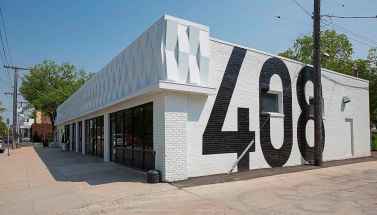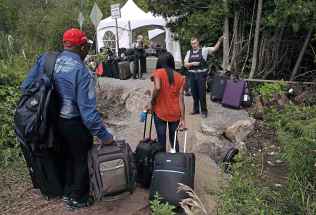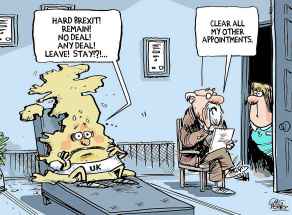City’s wish list of capital projects tallies $4.9 billion
Read this article for free:
or
Already have an account? Log in here »
To continue reading, please subscribe:
Monthly Digital Subscription
$0 for the first 4 weeks*
- Enjoy unlimited reading on winnipegfreepress.com
- Read the E-Edition, our digital replica newspaper
- Access News Break, our award-winning app
- Play interactive puzzles
*No charge for 4 weeks then price increases to the regular rate of $19.00 plus GST every four weeks. Offer available to new and qualified returning subscribers only. Cancel any time.
Monthly Digital Subscription
$4.75/week*
- Enjoy unlimited reading on winnipegfreepress.com
- Read the E-Edition, our digital replica newspaper
- Access News Break, our award-winning app
- Play interactive puzzles
*Billed as $19 plus GST every four weeks. Cancel any time.
To continue reading, please subscribe:
Add Free Press access to your Brandon Sun subscription for only an additional
$1 for the first 4 weeks*
*Your next subscription payment will increase by $1.00 and you will be charged $16.99 plus GST for four weeks. After four weeks, your payment will increase to $23.99 plus GST every four weeks.
Read unlimited articles for free today:
or
Already have an account? Log in here »
Hey there, time traveller!
This article was published 30/05/2019 (2388 days ago), so information in it may no longer be current.
City hall will need to drum up $4.5 billion in funding to push forward on all the major capital projects proposed for Winnipeg in the next decade – a fact which would require astronomical debt, water and sewer rate spikes, and property tax hikes.
List of unfunded capital projects:

East of the Red Rec Plex
South Winnipeg Recreation Campus (phases 1-3)
Southeast Winnipeg Recreation & Library Facilities (phases 1-2)
Arlington Bridge replacement
East of the Red Rec Plex
South Winnipeg Recreation Campus (phases 1-3)
Southeast Winnipeg Recreation & Library Facilities (phases 1-2)
Arlington Bridge replacement
Chief Peguis Trail extension west
Lagimodiere Twin Overpasses rehabilitation
Louise Bridge replacement
Marion transportation improvements
Route 90 improvements
St. Vital Bridge rehabilitation
William Clement Parkway
Electric Bus Pilot Project
North Transit Garage replacement
Rapid Transit Corridors (3 corridors)
Airport Area West Water and Sewer Servicing
North End Sewage Treatment Plant (phases 1-3)
Southwest Interceptor (phase 2)
That’s the dire fiscal picture painted by a six-page report – obtained by the Free Press in advance of its release – that is slated to be posted to the City of Winnipeg’s website Friday morning.
The report highlights 22 major capital projects carrying a collective price tag of $4.9 billion and comprising 60 per cent of the city’s infrastructure deficit. Ninety-one per cent of the costs remain unfunded at this time.
If the city moves forward on all of them – many of which are considered vital for economic development – during the next decade, it will require significant help from other levels of government, obliterating the municipal debt ceiling and steep tax increases.
For example, if the city were to finance the tax-supported projects by borrowing money, it would translate into a property tax increase of 30 per cent over the next ten years, on top of water and sewer rate hikes of 37 per cent.
Todd MacKay, Prairie Director of the Canadian Taxpayer Federation, said while he recognizes this is just a city report and not necessarily a policy proposal, the numbers are shocking.
“It’s good to do long-term planning, but those kinds of tax increases would be absolutely unacceptable. Winnipeggers can’t take that kind of bill hitting them hard in the wallet. The city has a lot more work to do, because that’s not an option,” MacKay said.
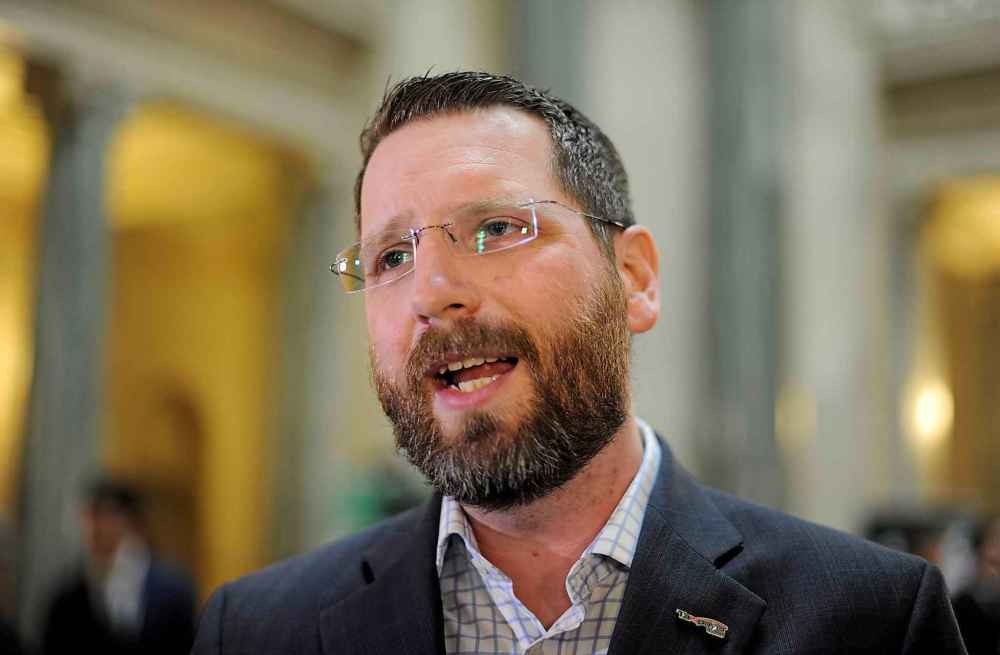
Coun. Matt Allard (St. Boniface), who chairs Winnipeg’s infrastructure renewal and public works committee, said the report – which he had not seen before the Free Press provided a summary – highlights the financial bind the city is facing.
“For a lot of people those kinds of property tax increases would mean the different between buying groceries and paying their mortgage. We’re going to have to have conversations about revenue, but also about what capital projects do we really need to do,” Allard said.
The report indicates Winnipeg could attempt to tap into combined funding of $1.2 billion from the provincial and federal governments. However, Allard said recent history shows the city can’t rely on the province to keep its word.
“It’s become increasingly obvious that in order to move forward on any major capital work that involves other levels of government, then we need to have a more reliable partner in the Province of Manitoba,” Allard said.
“We had an existing agreement for road funding in place, then we built the roads and find out they won’t be paying. That makes things difficult. I think the road story is one to consider.”
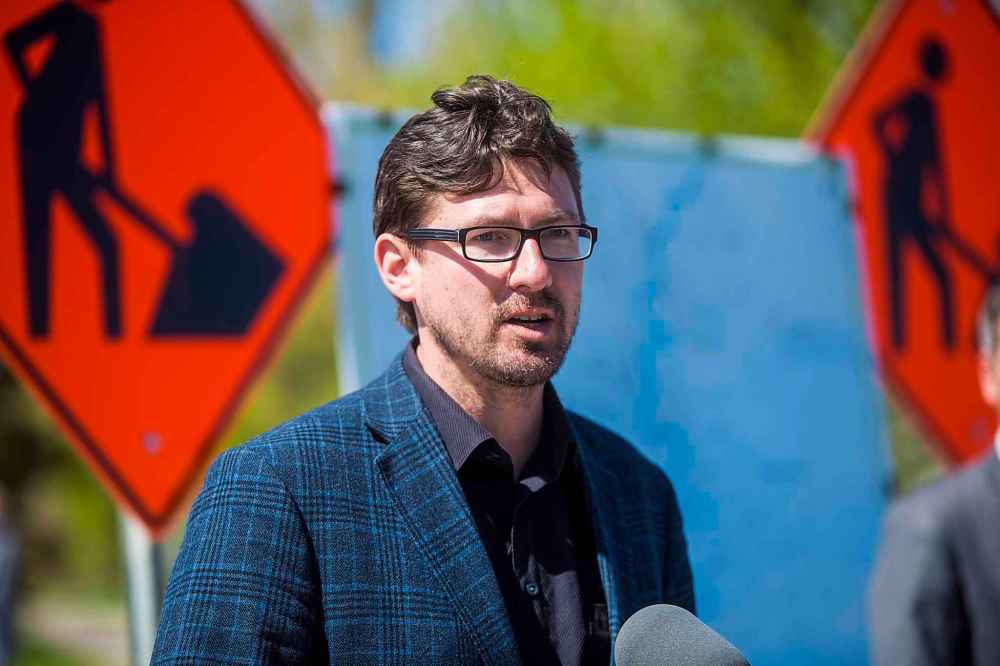
The 22 unfunded projects are spread through four city departments: Community Services; Public Works; Winnipeg Transit; and Water & Waste.
At this time, the projects have not been prioritized. The report – which will be tabled to EPC and, if approved, go to council – recommends the public service develop a prioritization list by the end of 2019.
Preliminary design studies have been completed for only three of the projects in question: the Arlington Bridge replacement; the Chief Peguis Trail extension; and the North End Sewage Treatment Plant.
Winnipeg Chamber of Commerce president and CEO Loren Remillard said he’s happy the city is casting its eye to the future in this way and he’s hopeful the report can stir a community conversation on how to fund needed development.

However, under its current revenue model, he said Winnipeg’s hands are tied and it won’t be able to generate the revenue needed to address its infrastructure deficit of $6.9 billion.
“The infrastructure deficit and the capital projects are symptoms of a much larger problem that we have with our cities and that is the fact the revenue model is antiquated and based on the notion of wealth tied to property. We need something different,” Remillard said.
“The province and the federal government benefit most from the movement of goods and services within cities and that’s because their revenue models are tried to economic growth, not property.
“Their tool boxes are much bigger and they have more tools in them. What we need to be talking about is changing the city’s toolbox.”
Since the municipal government is governed by the City of Winnipeg Charter – which is a piece of provincial legislation – any change to the municipal revenue model would have to come from the province.
Remillard said the Manitoba Government wouldn’t have to reinvent the wheel to make changes, since other municipalities – in Europe, in particular – have already shifted away from a property-based revenue system.
“Across Canada, our cities don’t have the revenue model they need to be as successful as they can be. I think that’s quite troublesome. This is not just a Winnipeg issue, it’s a national issue. The time has come – actually, I’d argue the time came a while back – where we need a change,” Remillard said.
“If we care about our city, we need to say the current model is broken. We need a new model, one that’s tied to economic growth.”
ryan.thorpe@freepress.mb.ca
Twitter: @rk_thorpe

Ryan Thorpe likes the pace of daily news, the feeling of a broadsheet in his hands and the stress of never-ending deadlines hanging over his head.
Our newsroom depends on a growing audience of readers to power our journalism. If you are not a paid reader, please consider becoming a subscriber.
Our newsroom depends on its audience of readers to power our journalism. Thank you for your support.







